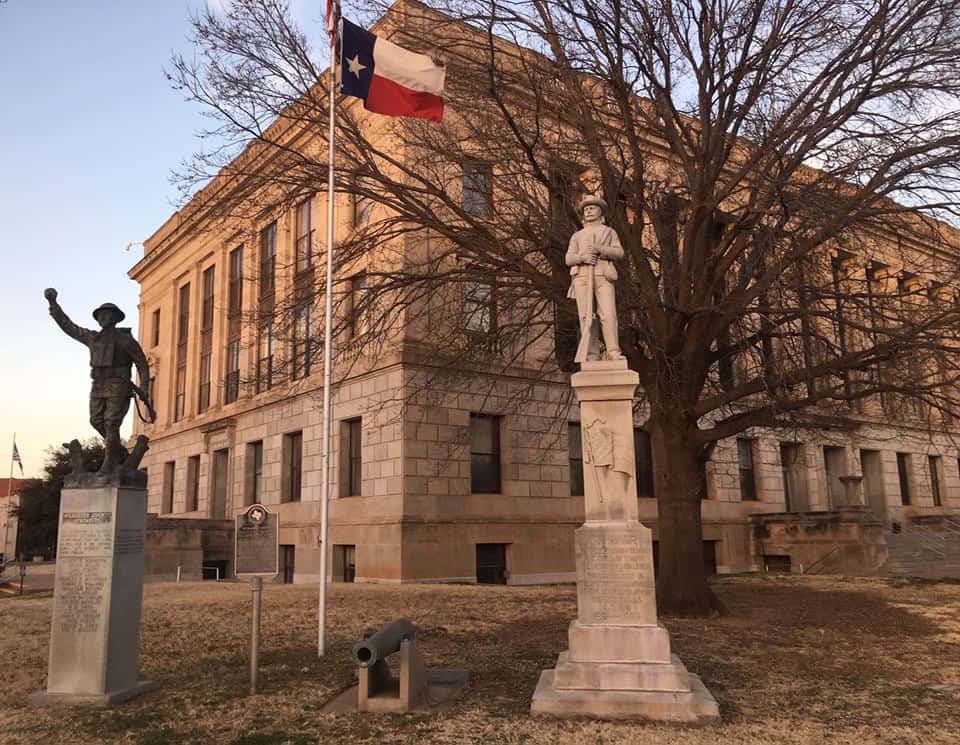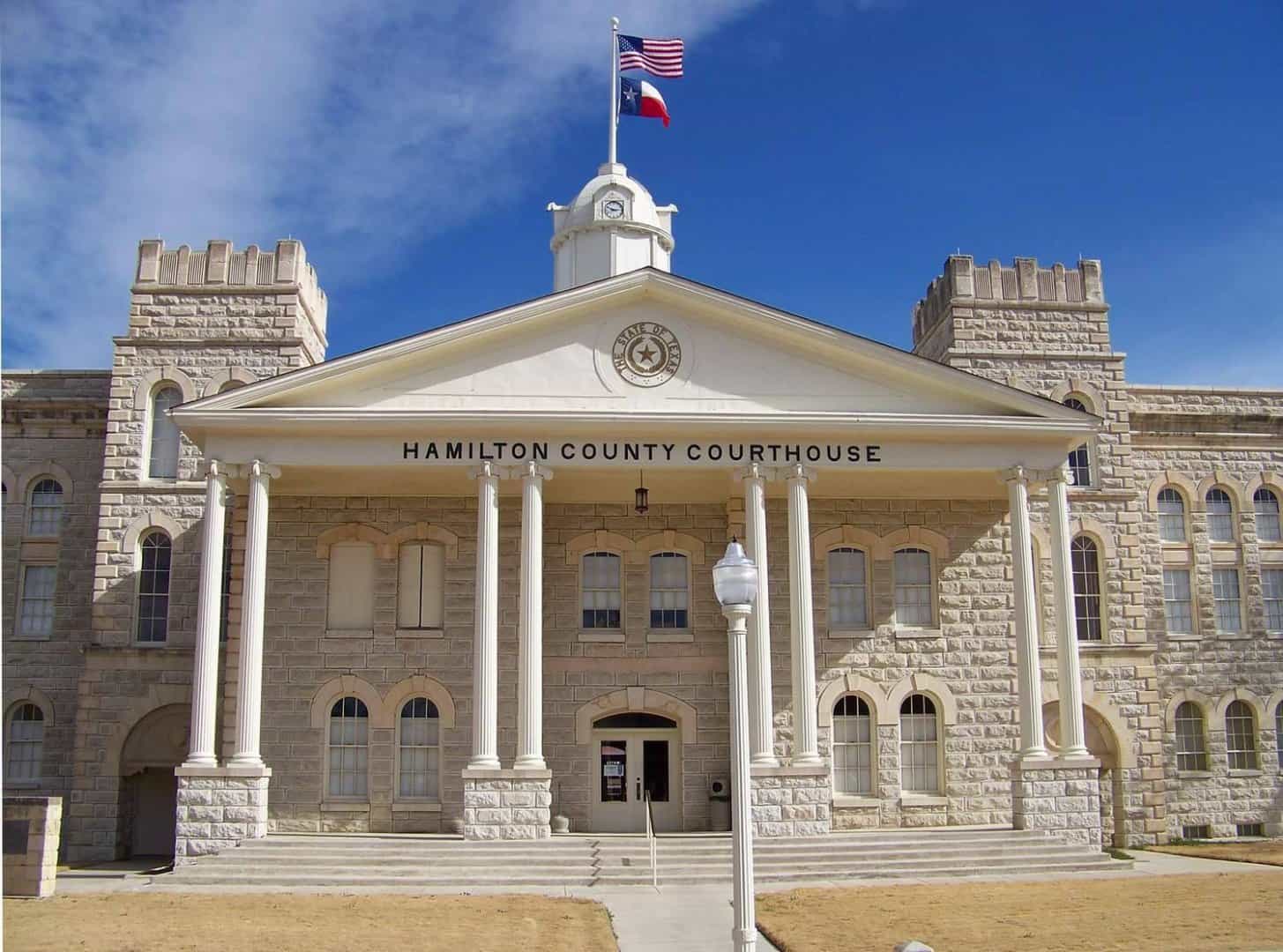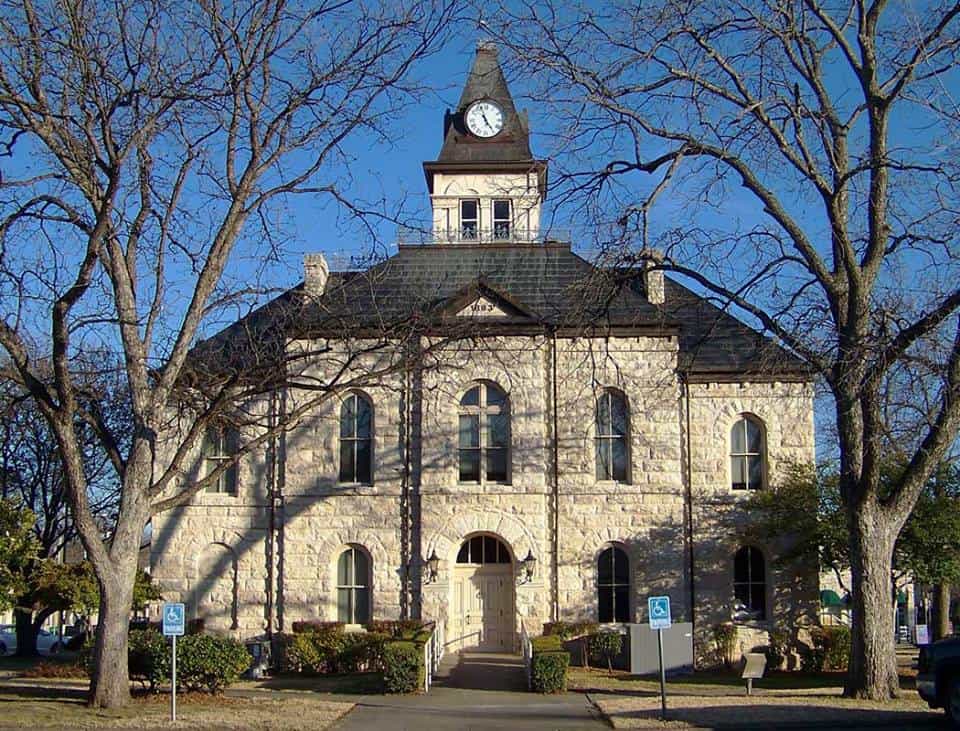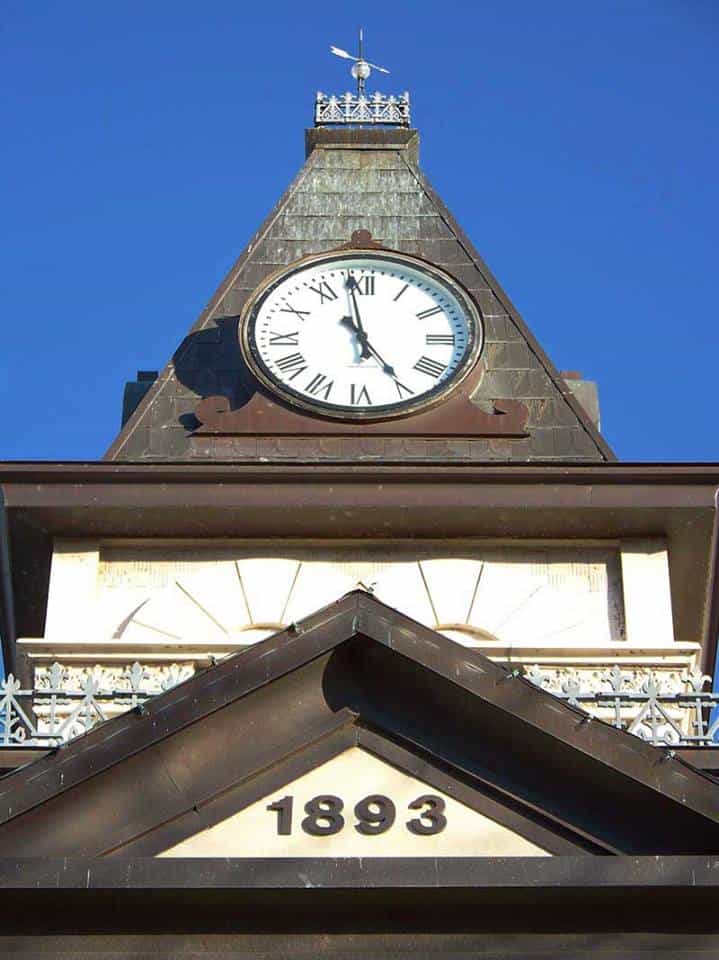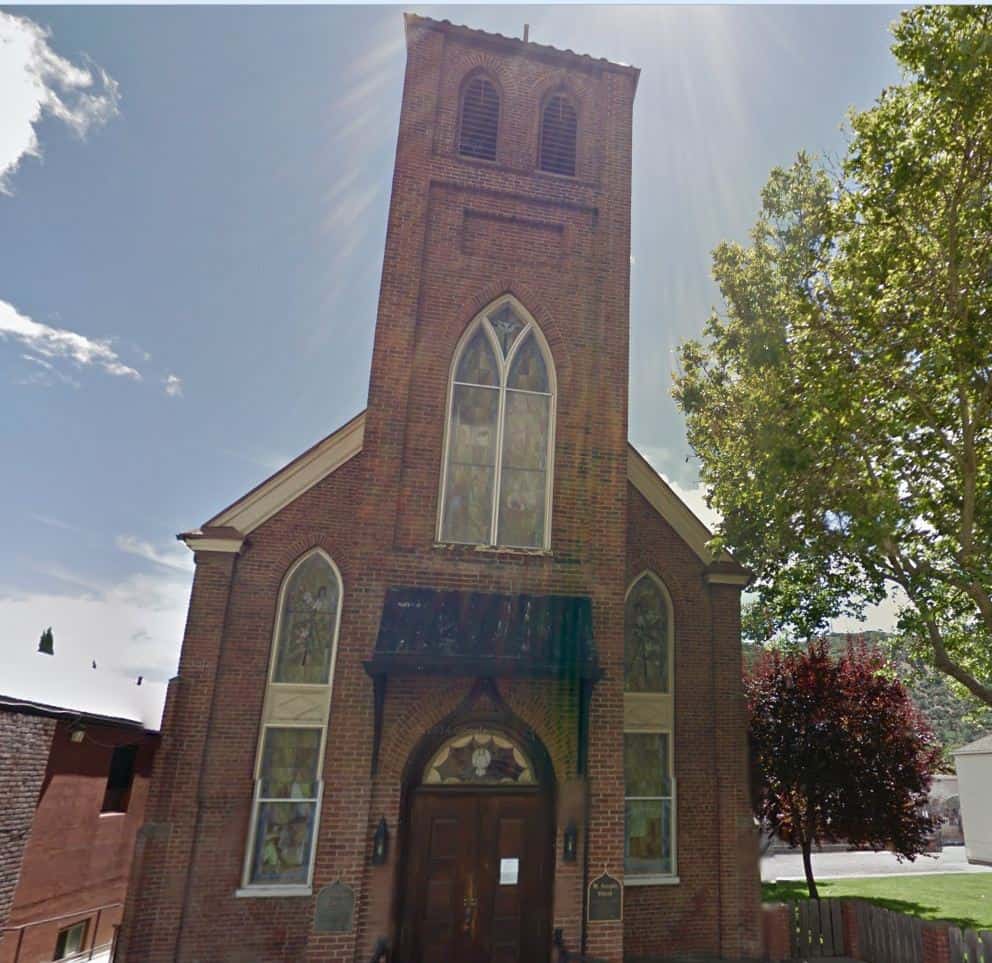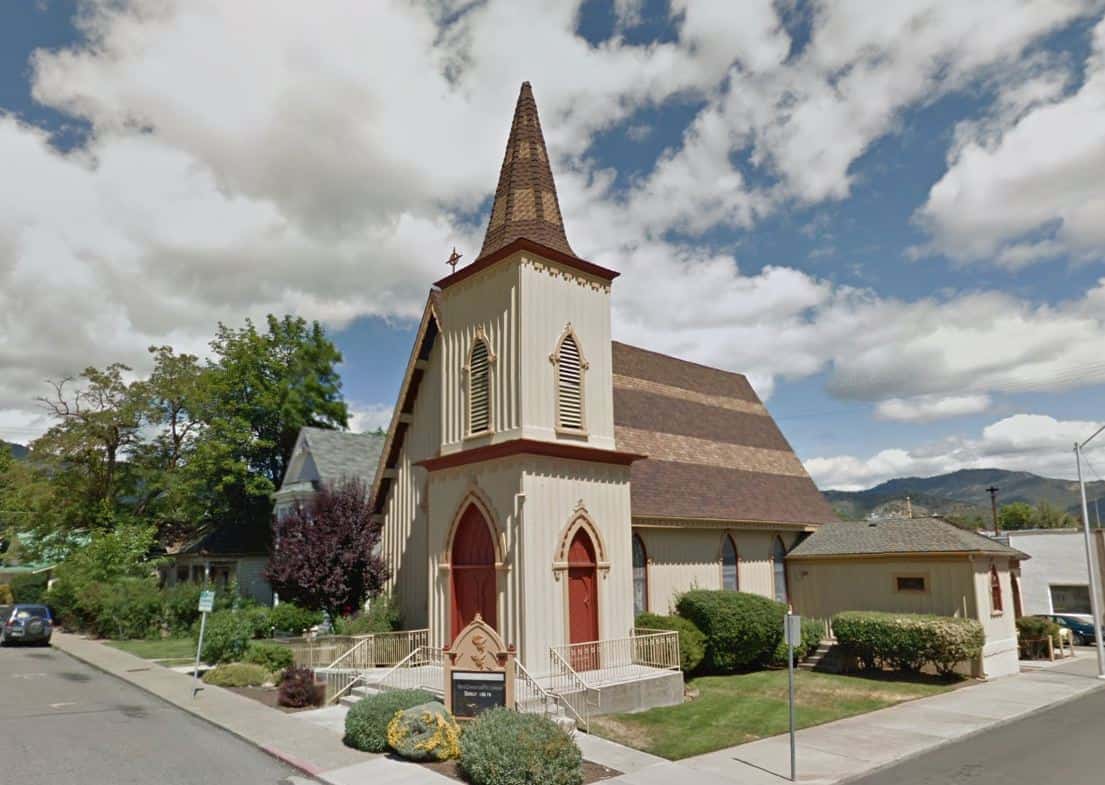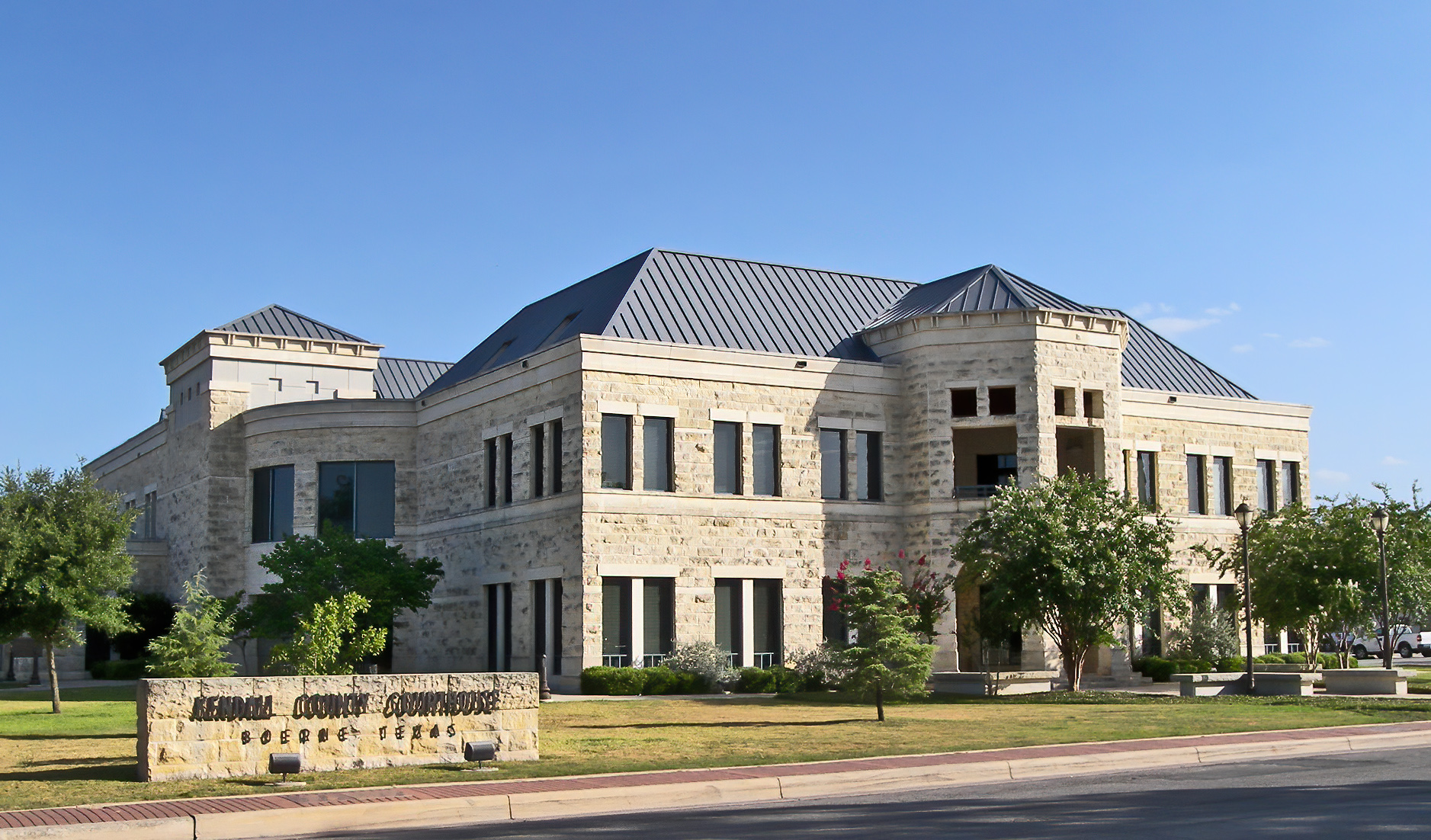I do believe that same statue is on the lawn of a nearby city hall building. When I was a little tyke going about that town with my grandmother, I would make a point to look for that statue. Years later it disappeared and a giant bush occupied that area. More years later they cut down the giant bush and.....you guessed it....the statue had been there all along.
Kent McMillan, post: 418579, member: 3 wrote: There are courthouses that just hurt your eyes and mind to look at.
It's pretty much impossible that an architect (or even anyone with a library) was involved in designing that one. Note the rotation of the column capitals 45å¡ off the axis of the entablature they support. I'd think there's a good chance that this is the only public building in Texas with that blunder on public display.
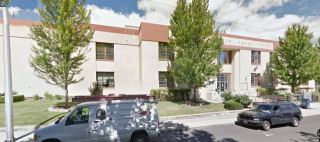
Remodeled with no respect for the past. Soon to be torn down.

To this...Still no respect for the past. Anybody care to critique the new design?
To me it has a distinct early 1970's feel. Just change the walls from stucco or block...whatever that is... to diagonal redwood siding.
Directly across the street on two sides....
imaudigger, post: 418688, member: 7286 wrote:
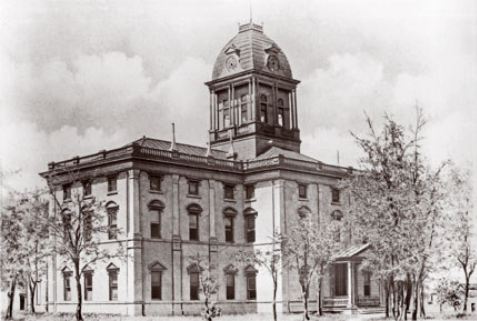
Original.

Remodeled with no respect for the past. Soon to be torn down.

To this...Still no respect for the past. Anybody care to critique the new design?
Yes, that's pretty poor architecting. There's no reason that new buildings can't evoke forms of the past and be built with materials and of a scale appropriate to their surroundings. The whole point of civic structures like courthouses, apart from actually serving the functions they must, is their symbolic content, saying something about the society that produced them. The new buildings could be in Brasilia or Taipei, it appears to me.
For example, here's a link to a photo of the (new-ish) Kendall County Courthouse in Boerne, Texas. It's a modern, highly functional building that still connects with images of the older courthouse it replaced in its forms and use of materials on the exterior.
paden cash, post: 418181, member: 20 wrote: Up here in the Food Stamps Territories we have a few classy courthouses...emphasis on the word few. Most are what I call "Twentieth Century Department of Corrections Classical" . Evidently even the architects embraced the barren hopelessness of living in some areas.
I kind of dig that courthouse. Our Houston City Hall has that same type of look to it.
The original 1818 courthouse. Still
Exists on private property.
The new humongous courthouse that is completely out of scale.
But it helped revive our downtown since our city is designated as the county seat. It was built on an industrial site that was a blemish. It is very spacious and has an atrium that dominates the interior.
Last photo is the fifties courthouse that became cramped for space. You got to know people very personally while working there. I think the new courthouse size was an overreaction to the confined conditions. I guess they didn't account for the rapid growth spurt 20 years later and after the causeway to the south shore was completed.
Ugly bomb shelter style with a mosaic tile map of the parish. Nice grounds with the live oaks. They light up them for the holiday season.
There is a CORS on the left roof corner of the building. The Forest Gump bench parody scene in Joe Dirt 2 was filmed under the live oak on the left.
The reality seems to be that courthouses aren't static things. They shells for functions that outgrow them and then something must change.
The typical pattern in Texas is for the County Clerk's Office to be shifted to some storefront on the public square facing the original building. As long as there is sufficient fire protection and the storefront is adequately adapted, I see no problem with that. With the arrival of scanning technology, at some point the need for new physical records storage vanishes, so a storefront could, in theory, be the final destination for the Clerk's Office.
The really great courthouses are those where the original offices are still in place, occupying the same spaces that they did in 1900, or whenever the courthouse was constructed. They are time capsules and all too rare. Even in Presidio County, some of the records have been booted over to dead storage in the old jail building.
Kent McMillan, post: 418577, member: 3 wrote: Those are sad images of otherwise interesting buildings, though. Part of the art of photographing architecture is paying attention to the light and shadow on the building and that requires being there at specific times of day.
Most of these pictures were selected and taken for reference and provide a link between architects and historic commission.
The state has a guy they call on to record the state of historical society's kept buildings.
A Harris, post: 418750, member: 81 wrote: Most of these pictures were selected and taken for reference and provide a link between architects and historic commission.
The state has a guy they call on to record the state of historical society's kept buildings.
Yes, but there is considerable room for improvement. The light in which buildings are photographed is particularly important since the cast shadows make the three-dimensional featurs stand out.
